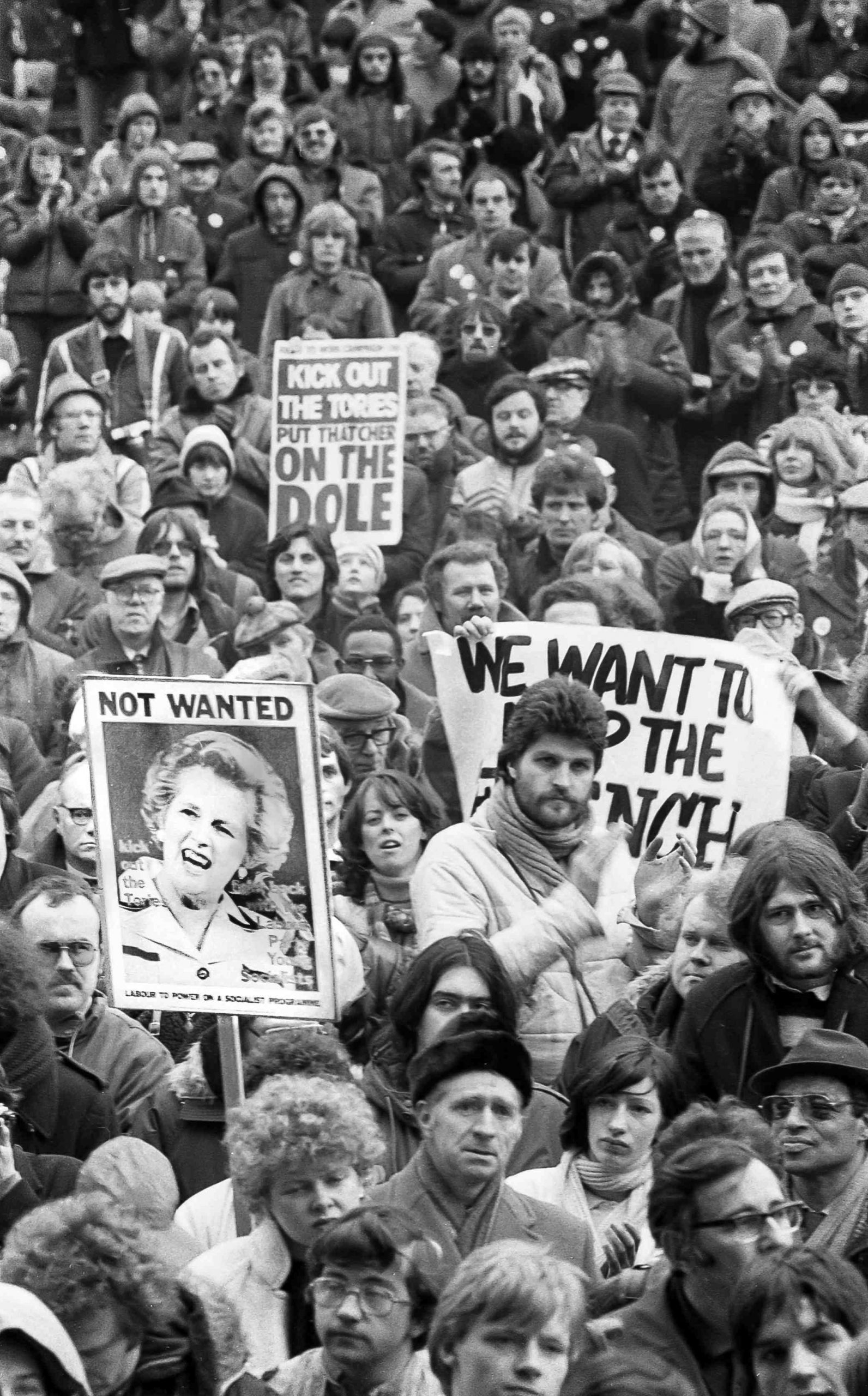Vibrant photos of Glasgow street life in the '70s and '80s
- Text by Miss Rosen
- Photography by Peter Degnan

Back in 1975, 17-year-old Peter Degnan began pursuing what would become a lifelong passion for photography. He had left school two years earlier to join an engineering apprenticeship with Rolls Royce in Glasgow, a city he describes as “a tough place to live, but one that was soon to embark on a renaissance.”
Drawn to the gritty honesty of photographers like Eamonn McCabe, Don McCullin and Bert Hardy, Degnan aspired to documentary work, chronicling the harsh realities of everyday life in Glasgow. Unemployment ravaged the working class landscape. The remaining slum dwellings still standing were soon torn down, while communities were dismantled and relocated into tower estates.
“Successive UK governments had commenced the de-industrialisation of Scotland ,” Degnan says. “Coal mining, steel making and ship building, which were once the backbone of the country, were being systematically destroyed.”
In the new book, Glasgow 1970s–1980s (Café Royal Books), Degnan revisits this transformative chapter of Scottish history. “There was a lot of change happening all across the country. The old was disappearing and the new was taking over. I realised that I needed to get out with my camera and record some of it whilst it still existed,” says Degnan.

Anti-Thatcher protest, 1978.

Glasgow Celtic Supporters, 1978.
Inspired by photographer Oscar Marzaroli, who chronicled Glaswegian life in the 1950-80s, Degnan followed a simple but effective piece of advice: “Just keep taking photographs.”
Realising the discipline required time, energy, and resources, Degnan got to work, setting up a darkroom in his bedroom, and using the equipment at the local photographic society. After one particularly productive Sunday afternoon making prints at the community centre, Degnan discovered the caretaker had gone home early and locked him in.
Alarms went off and a pair of burly police officers arrived and needlessly pinned the young photographer against the wall. After being cleared of any alleged offence, Degnan went on his way, wholly undeterred from his further adventures in photography.

Govan Lyceum, 1981.

Glasgow Moss Heights, 1976.

Govan slum houses, 1977.
While all of the photos have memories, Degnan counts those he made in the Glasgow “Barras”, the popular 100-year-old flea market, among his favourites.
“The stalls were manned by ‘characters’ that could hold an audience in the palm of their hands,” he says. “One time, whilst taking photos, a trader stopped in mid-flow and asked me if I was from the Government Social Security office. Although I explained no, I soon found myself being asked to move on by a couple of his minders.”
For Degnan, street photography was the perfect way to engage with people directly as they go about their daily lives, finding ways to connect across the divide. His archive is replete with images of family and friends, many of whom have passed, that locals recognise and delight in rediscovering.

Celtic Supporters Club, 1976.
“It was a bleak time but thankfully the Glaswegian sense of humour constantly shone through,” he says. “By the mid-1980s Glasgow was a much brighter and optimistic place. It had been nominated as a UK City of Culture, which it later became in 1990, blowing away the image of slums, gangs and deprivation.”
Glasgow 1970s–1980s is out now via Café Royal Books.
Enjoyed this article? Like Huck on Facebook or follow us on Twitter.
Latest on Huck

In the ’60s and ’70s, Greenwich Village was the musical heart of New York
Talkin’ Greenwich Village — Author David Browne’s new book takes readers into the neighbourhood’s creative heyday, where a generation of artists and poets including Bob Dylan, Billie Holliday and Dave Van Ronk cut their teeth.
Written by: Cyna Mirzai

How Labour Activism changed the landscape of post-war USA
American Job — A new exhibition revisits over 70 years of working class solidarity and struggle, its radical legacy, and the central role of photography throughout.
Written by: Miss Rosen

Analogue Appreciation: Emma-Jean Thackray
Weirdo — In an ever more digital, online world, we ask our favourite artists about their most cherished pieces of physical culture. Today, multi-instrumentalist and Brownswood affiliate Emma-Jean Thackray.
Written by: Emma-Jean Thackray

Meet the shop cats of Hong Kong’s Sheung Wan district
Feline good — Traditionally adopted to keep away rats from expensive produce, the feline guardians have become part of the central neighbourhood’s fabric. Erica’s online series captures the local celebrities.
Written by: Isaac Muk

How trans rights activism and sex workers’ solidarity emerged in the ’70s and ’80s
Shoulder to Shoulder — In this extract from writer Jake Hall’s new book, which deep dives into the history of queer activism and coalition, they explore how anti-TERF and anti-SWERF campaigning developed from the same cloth.
Written by: Jake Hall

A behind the scenes look at the atomic wedgie community
Stretched out — Benjamin Fredrickson’s new project and photobook ‘Wedgies’ queers a time-old bullying act by exploring its erotic, extreme potential.
Written by: Isaac Muk